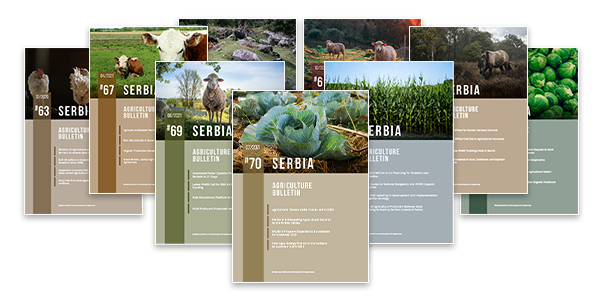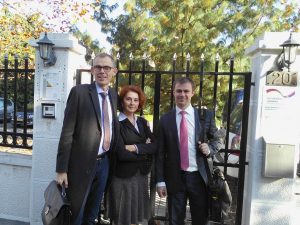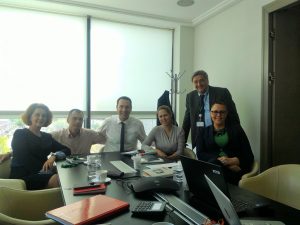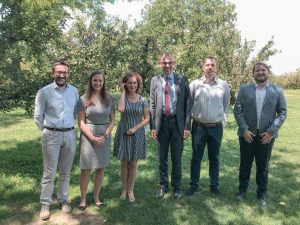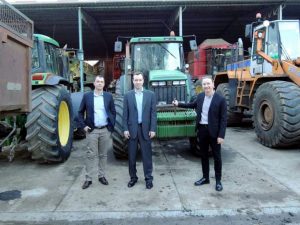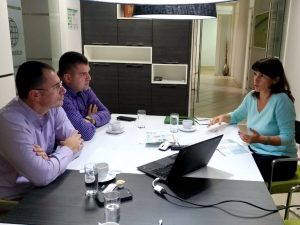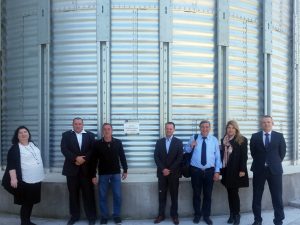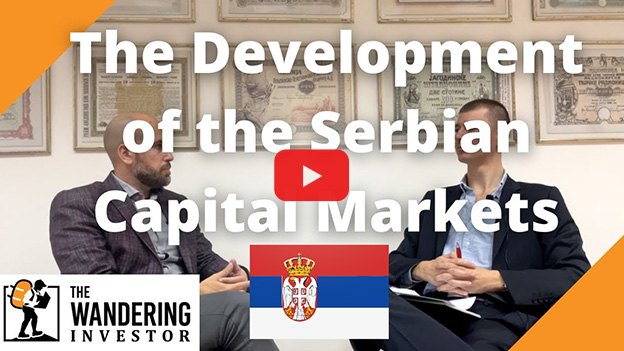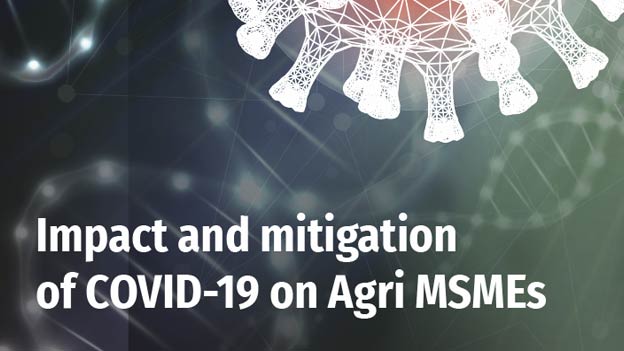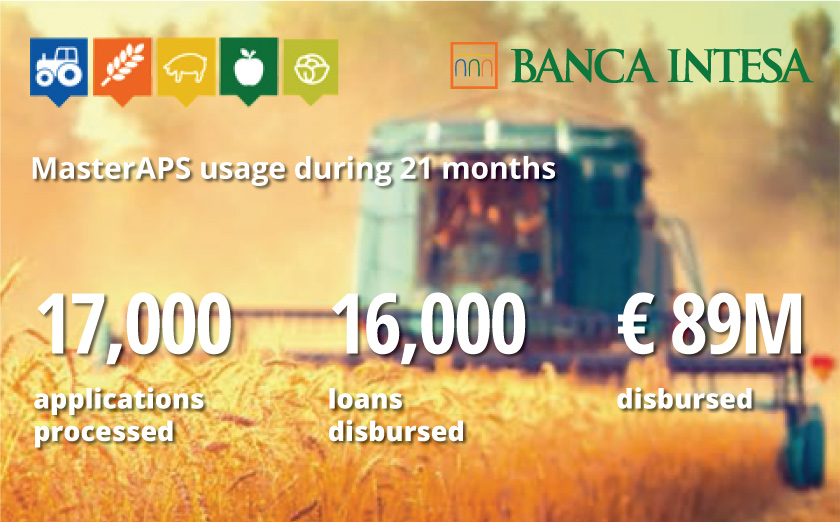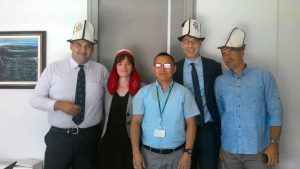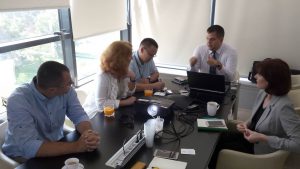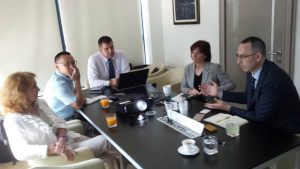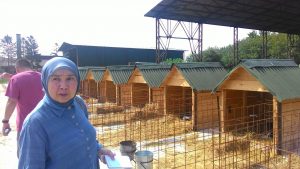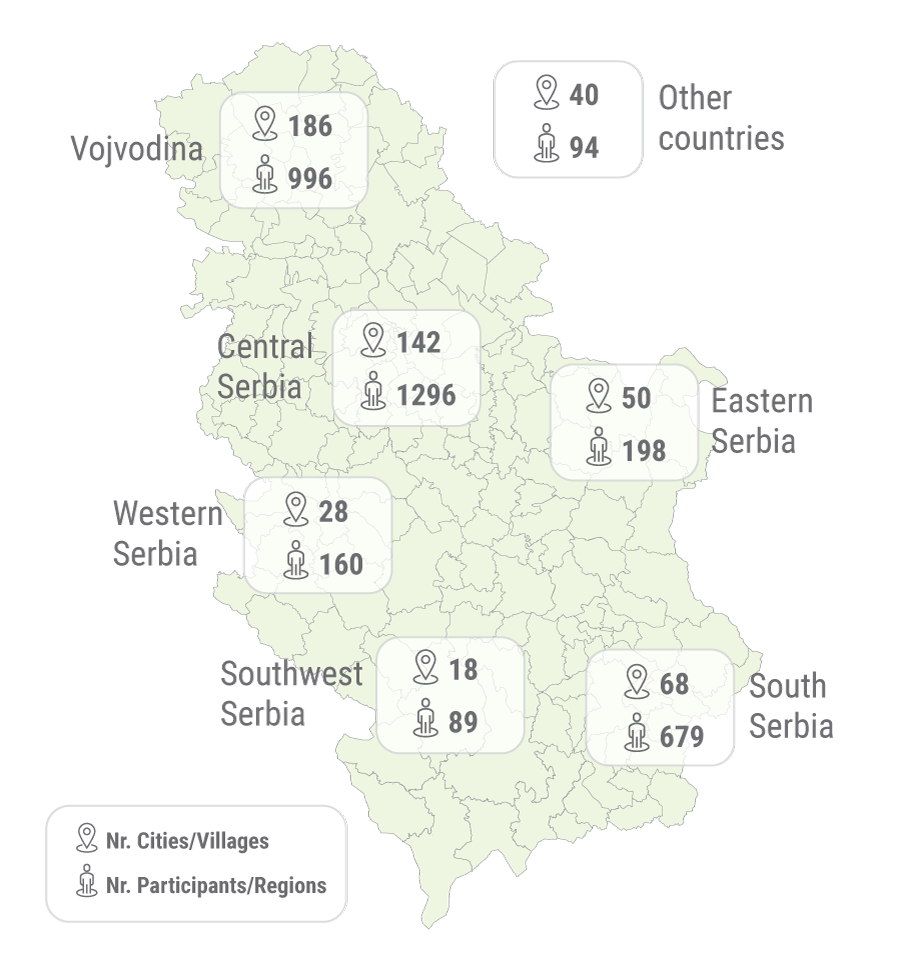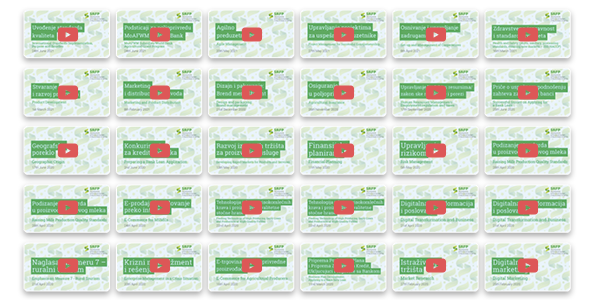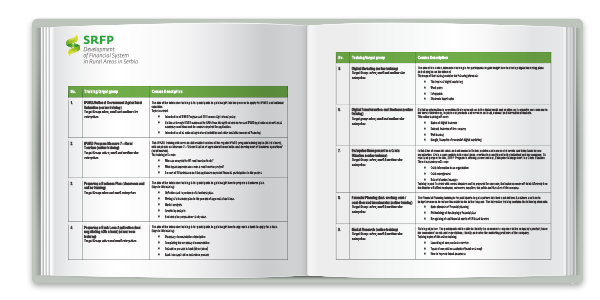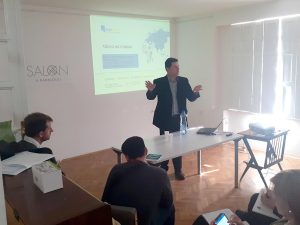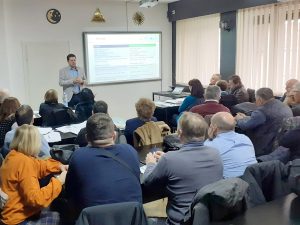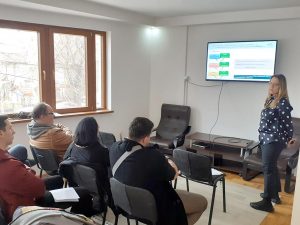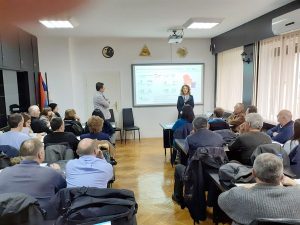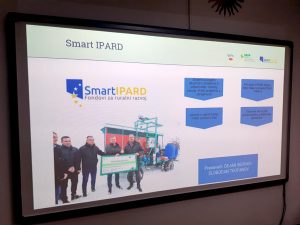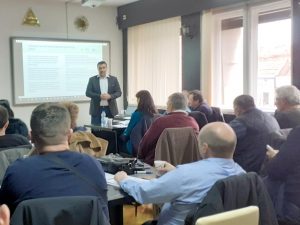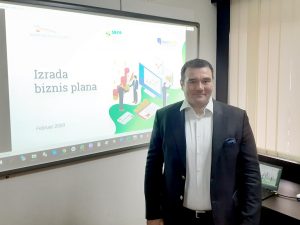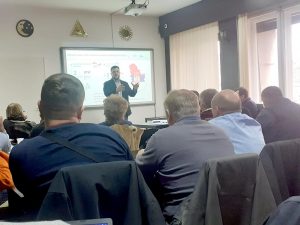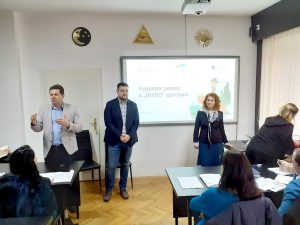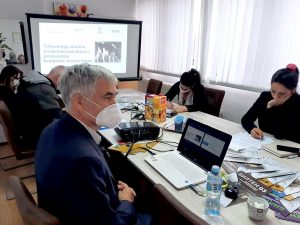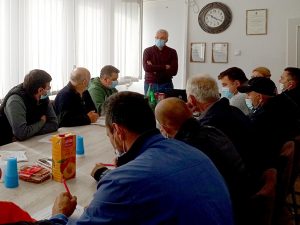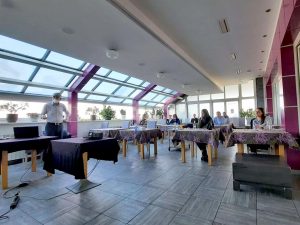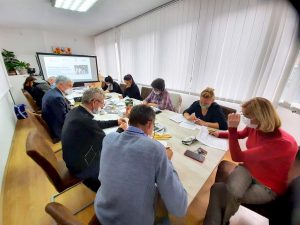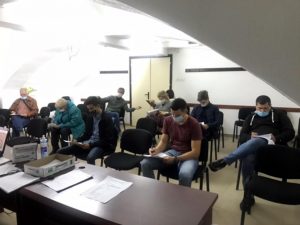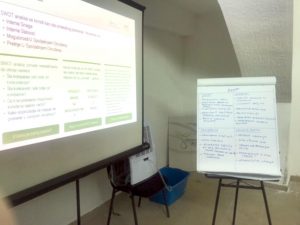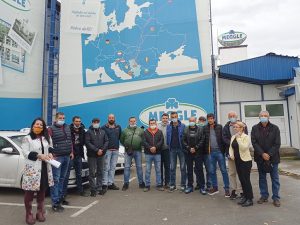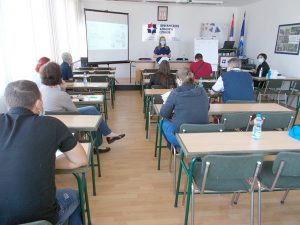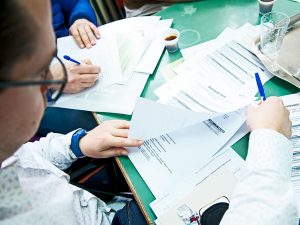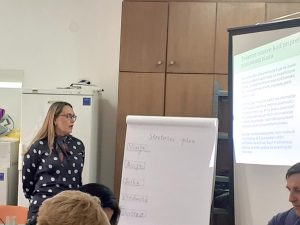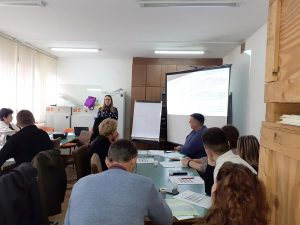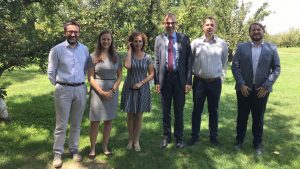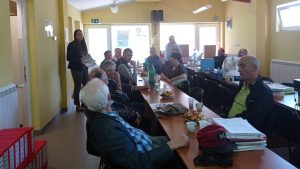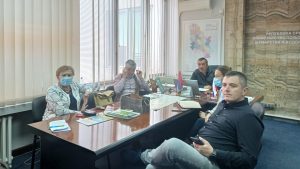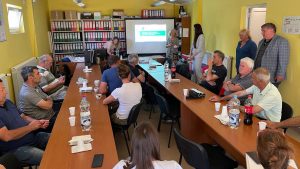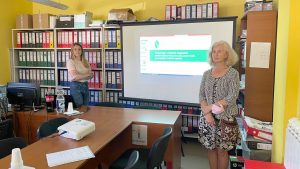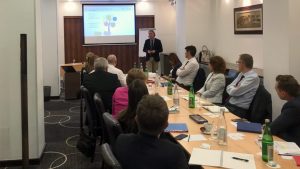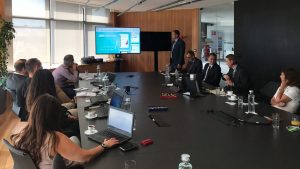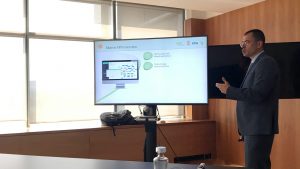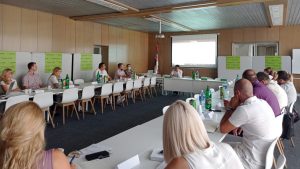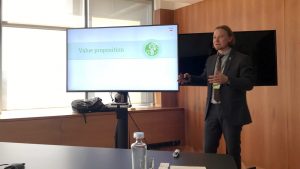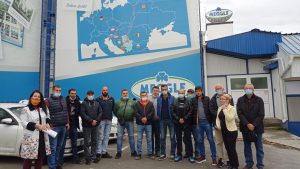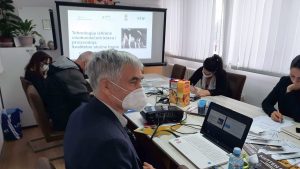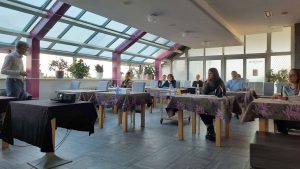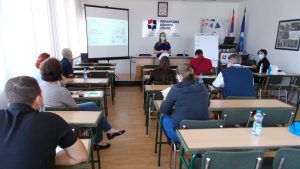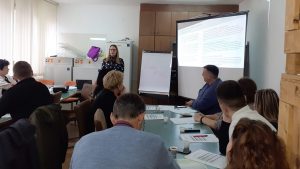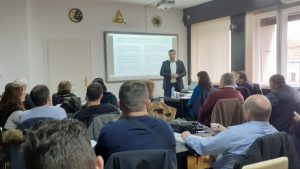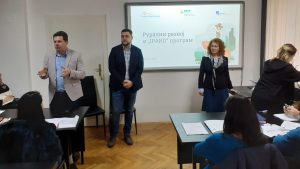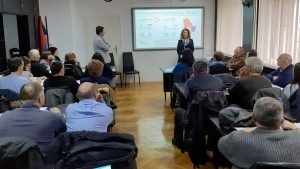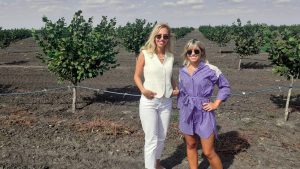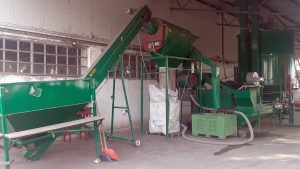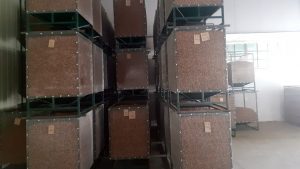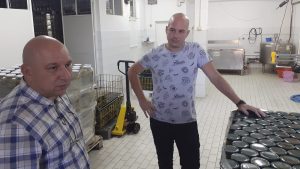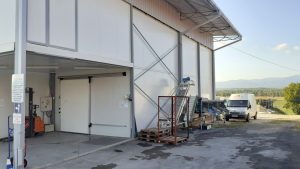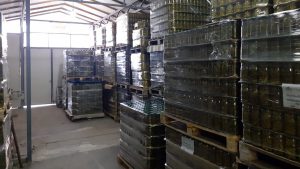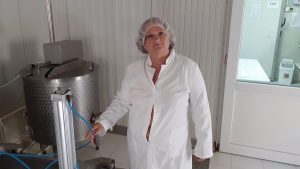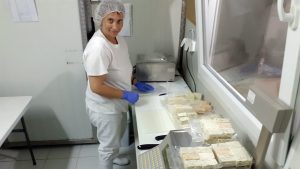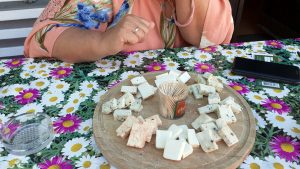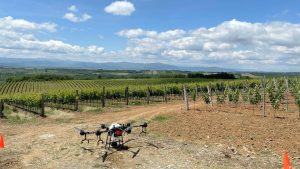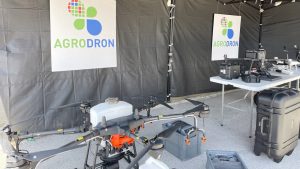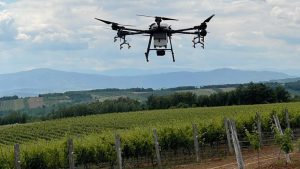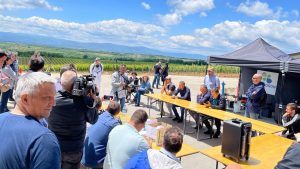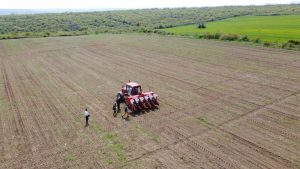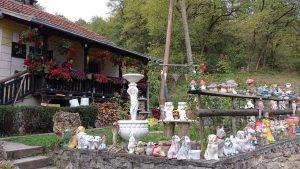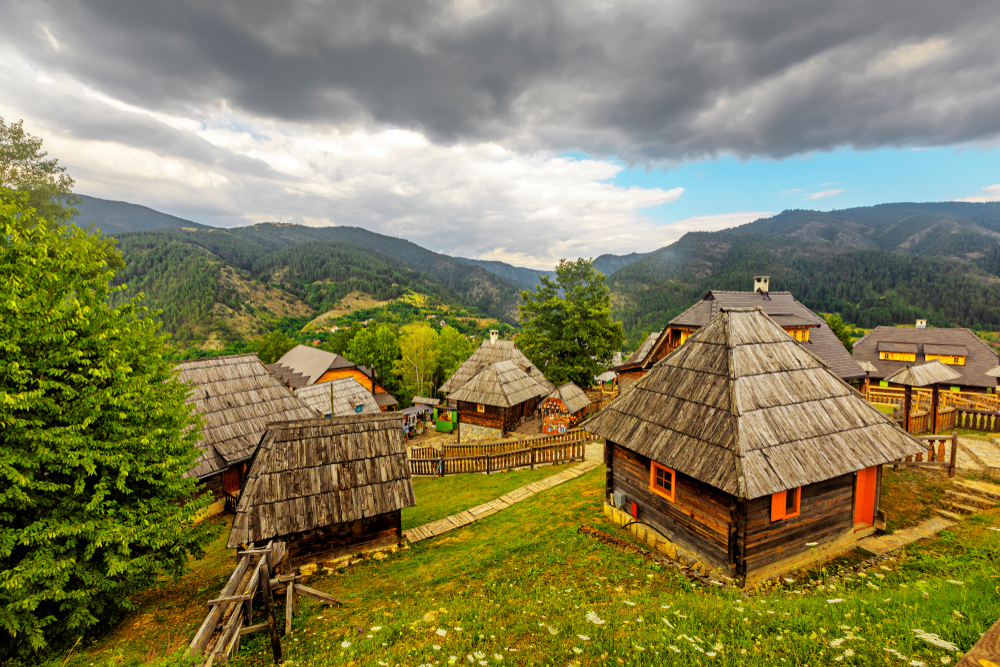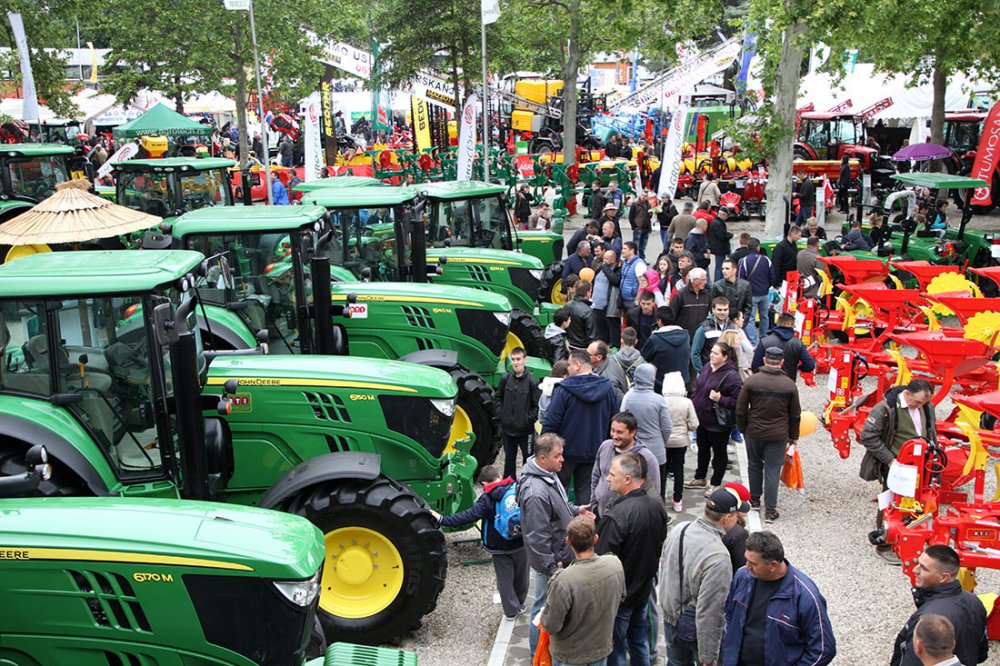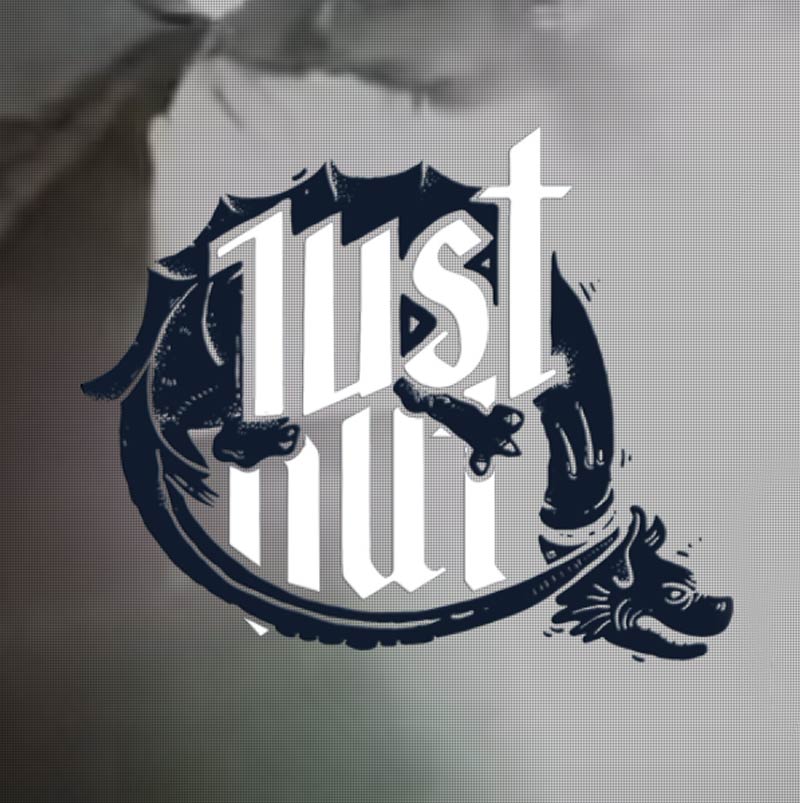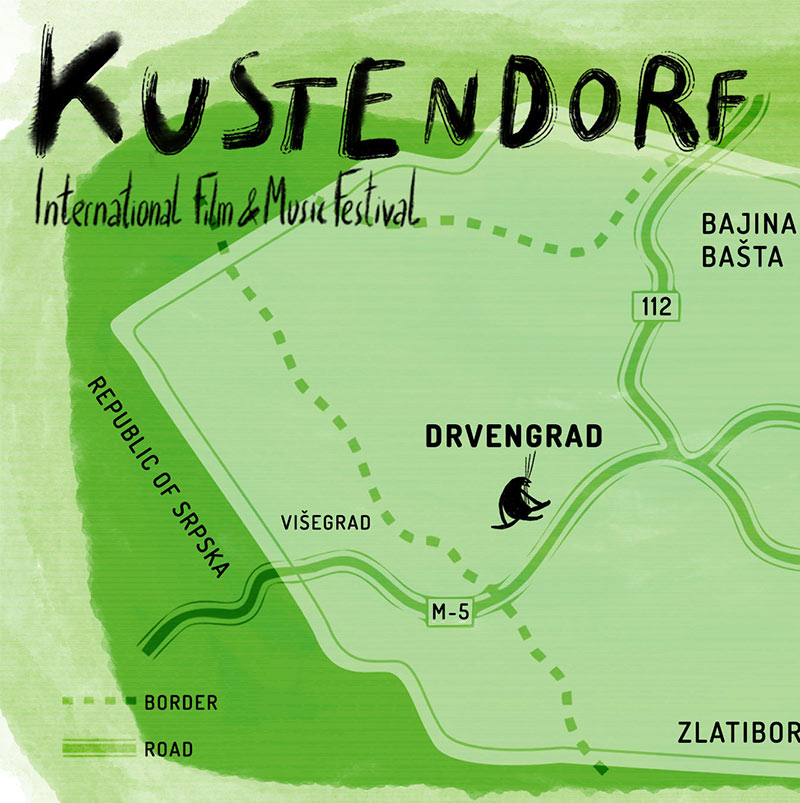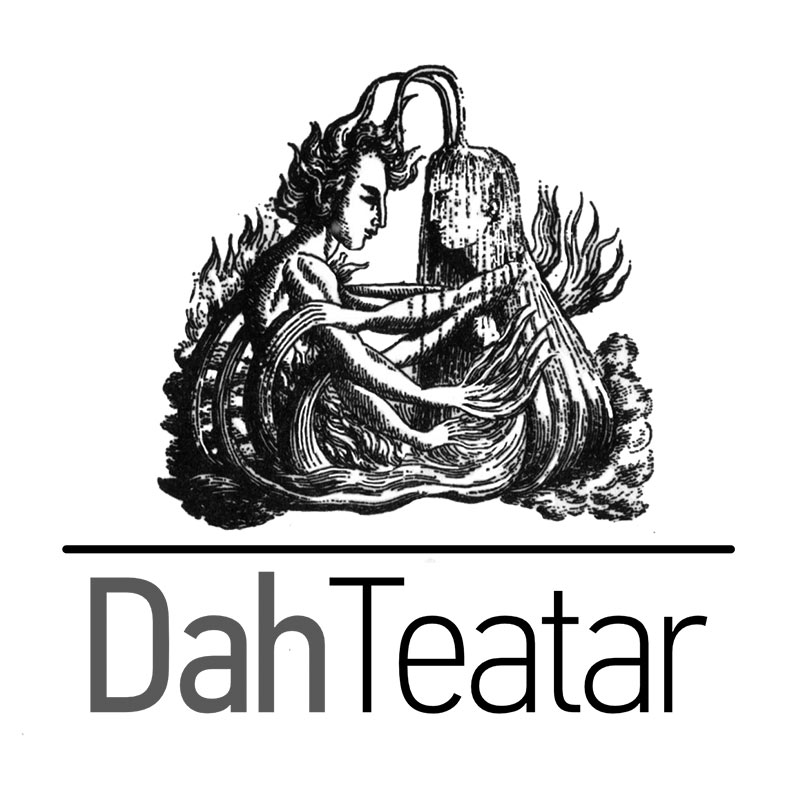






and MSME Finance Work
and MSME Finance Work
Agriculture in Serbia—Overview
The agricultural sector is one of the principal components of the economy of Serbia, currently employing approximately 15% of the labour force and accounting for roughly 6.5% of GDP. Despite its socio-economic importance, major impediments hampering development and modernisation in rural areas include: outdated production technologies, rudimentary infrastructure, inadequate water and waste management facilities and a lack of longer-term finance. To address existing barriers and attract investment, the Serbian government is introducing a number of structural reforms, alongside recently providing relief measures to alleviate the economic impact of COVID-19. Since 2015, BFC has supported the efforts of the KfW Development Bank and the Ministry of Agriculture, Forestry and Water Management (MoAFWM) to expand rural/agricultural MSME lending and improve financial literacy, business management skills and productivity through implementation of good agricultural practices.
Investing in Agriculture
Under the umbrella of the German-Serbian Economic Cooperation, the KfW Development Bank, has commissioned the Development of Financial System in Rural Areas in Serbia (SRFP) Program, with the overall objective to improve access to credit and support competitiveness of micro, small and medium-sized enterprises (MSMEs) and entrepreneurs. Since 2015, two rural development credit lines (2015–2017 and 2019–2021 subsequently), with a total volume of EUR 38.5 million have been unlocked to foster development of the rural/agricultural economic sectors of the Republic of Serbia.
Private Investing
With agribusiness being cited as a prosperous sector to invest in, we share a blogger’s (‘The Wandering Investor’) exploration of how viable investment opportunities are in Serbia. The video includes an interview with the business director of Belgrade’s Stock Exchange to gain a better understanding of capital markets in Serbia, review how the stock exchange found itself where it currently is and consider any interesting catalysts ahead.
COVID-19 Impact
The impact of COVID-19 on the agricultural sector was varied but mostly positive. Although certain sectors took a large hit, the pandemic also inspired modernisation of parts of the sector and has opened opportunities for innovation.
Read our detailed review of Smart Koletiv and Responsible Business Forum’s results of their 2020 survey of 209 MSMEs in Serbia. They explore the impact of COVID-19 on MSMEs in Serbia including challenges they were facing and the types of support they believed they needed to mitigate the economic and social consequences of the pandemic.
Click here for English version | Click here to open original Serbian version
Consulting for Partner Banks
To strengthen the capacity of Partner Banks in credit line implementation and ensure sustainable extension of loans to rural MSMEs and agricultural enterprises, BFC has cooperated with four banks under the following pillars:
- Enhancement of sales activities for small business lending: completed service quality audit (SQA) through a mystery shopping exercise and developed a series of recommendations to enhance Partner Banks’ staff sales and service skills.
- Expansion of product offering and credit risk assessment: conducted research to identify the risk profiles and creditworthiness of individual professionals and supported banks in tailoring their approach and product offering
- Improvement of agricultural lending technologies: implemented agro credit resume with integrated expert score cards and agro tech cards, which allow automation and enhancement of agro client analysis performed by the banks.
- Capacity building trainings for MSMEs and entrepreneurs: organized over 170 business training sessions for bank’s clients.
- Optimization of loan management system: implemented MasterAPS loan origination system used for credit cycle design, loan origination, borrower’s evaluation, data exchange and storage, as well as reporting. For further details on MasterAPS please visit maps.bfconsulting.com.
Partner Banks
Credit Agricole Serbia, since 2005 has served personal, small businesses and corporate customers with its network of 74 branches. It is Serbia’s second largest provider of agri-business financing.
UniCredit Bank has been active in Serbia in Corporate & Investment Banking, Commercial Banking and Wealth Management since 2001. Today, UniCredit Bank is Serbia’s leading bank.
Banca Intesa has been operating in Serbia for over 15 years, with over 1.3 million customers and a network of 154 branches in 100 cities it is one of the largest operating banks in Serbia.
OTP Bank Serbia (formerly Société Générale Bank Serbia) is a public listed company with a diverse international ownership structure. The bank now has a total of 213 branches throughout Serbia, focusing on innovation and digitalization with the goal of enhancing digital banking.
How Automation and Digitization Increased Productivity by 25% at Banca Intesa Serbia
Learn how a leading Serbian bank more than halved loan processing and approval times thanks to BFC’s MasterAPS loan origination system.
Banca Intesa Serbia is a leading bank in the Serbian market, having the largest share of total assets (15.8% as of Q2 2018). Banca Intesa Serbia is also a top-five bank in lending to Serbian registered household farms.
BFC Study Tour to Serbia
Conducted in the summer of 2018, BFC assisted in the creation and implementation of the study tour of Aiyl Bank, Kyrgyzstan to the Banca Intesa Belgrade office and site visits to rural farms. The aim was to showcase the experience of Banca Intesa and study the possibilities of optimizing and automating agriculture lending and service provision to rural customers through BFC’s application processing system—Master APS.
MSME Capacity Building
With support of local training partners (Eduka Plus, Smart IPARD, and Ecorestart Nis) BFC delivered over 170 capacity building trainings to more than 2300 rural MSMEs, agricultural enterprises, and farm successors throughout Serbia. The efforts focused on improving financial literacy and business management skills and enhancing productivity through implementation of good agricultural practices. To expand the support beyond the Program period, an electronic library of resources with information bulletins, blogs, brochures and training recordings are accessible at SRFP Website.
Starting with 2019, KfW Development Bank together with the Serbian Ministry of Economy and the Chamber of Commerce and Industry of Serbia (PKS) have commissioned the Entrepreneurship and Self-Employment Promotion Program. The Program aims at stimulating the environment for business start-ups and improving business conditions in the MSME and entrepreneurship sector through unlocking over EUR 2.5 million in financing and providing capacity building trainings on business plan development. Due to the COVID-19 pandemic and restrictions imposed on public gatherings, BFC has supported PKS with conversion of the in-person Business Plan Development training into an e-learning journey, thus ensure continuation of the technical assistance component albeit the COVID-19 pandemic. For further details on the Entrepreneurship and Self-Employment Promotion Program please visit www.pks.rs.
Enhancing Commodity Exchange
In cooperation with the KfW Development Bank and the Ministry of Agriculture, Forestry and Water Management (MoAFWM), BFC has developed measures to strengthen and establish a legally compliant commodity trading institution, NSCOMEX, and further support MSME competitiveness as well as spur domestic and international trade. The support has focused on 3 major areas:
- Development of a full set of procedural and legal documentation to ensure compliance with the new 2019 Commodity Exchange Law of Serbia.
- Establishment of a fully operationalized commodity trading platform (explore the NSCOMEX trading platform here: e-nscomex.com).
- Creation of marketing and promotional materials, as well as the design and launch of NSCOMEX website.
Cooperating with MoAFWM
To ensure successful implementation of the SRFP program, BFC has closely cooperated with Ministry of Agriculture, Forestry and Water Management (MoAFWM) and the Institute of Science Application in Agriculture (IPN) under the following technical assistance areas:
- Enhancement of Agricultural Advisory Services Network (PSSS) advisors and farmers knowledge and skills through more than 60 capacity building trainings
- Definition of PSSS extension and commercialization potential as well as development of recommendations for strengthening the agricultural advisory services
- Improvement of PSSS web portal
- Optimization and standardization of the demonstration trials process
- Development of the National Program for Rural Development for the Republic of Serbia for 2021–2024 period
Photo Gallery
Meetings with Program Stakeholders
Trainings for MSMEs, Entrepreneurs and Farm Successors in Rural Areas in Serbia
Rural Business
Explore Serbia
Home to famously impeccable hospitality, Europe’s largest gorge where the mighty Denube river runs, and host to one of Europe’s oldest cities, Belgrade, Serbia has a rich heritage and culture. Serbia is also homeland to many inventors and leaders, and is one of the largest producers of raspberries in Europe. Below we share some activities, festivals and places to see when visiting Serbia that we hope highlights our passion and appreciation for the country and its people.
Cultural Activities
Festivals
Exit Music Festival
'Exit' is an award-winning summer music festival that takes place at the Petrovaradin Fortress in Novi Sad, Serbia, with more than 1000 artists who play at over 40 stages and festival zones. The festival was formed in the spirit of genuine youth rebellion, as a movement for freedom in Serbia and peace in the Balkans, the festival’s mission statement is ‘to achieve social change with music’. Social responsibility is still the key aspect of the festival activities, with the main focus on environmental and humanitarian activities, the creative industries development, as well as regional cooperation.
Guča Trumpet Festival
Guča trumpet festival, also known as the Dragačevski sabor trubača (Serbian), is an annual brass band festival in the town of Guča, near Čačak city in Dragačevo, region of western Serbia. Over half a million visitors from Serbia and the world visit the town of 2,000 citizens each August to experience the diverse music.
Nišville - International Jazz Festival
The International Nisville Jazz Festival – the most visited jazz festival in Southeast Europe, since its founding in 1995, has consistently defended the European values of multiculturalism and patiently nurtured the refined musical taste of individuals. From the beginning, the concept of the festival, except for the “more traditional” forms of jazz, was based primarily on the fusion of this direction with the ethno traditions of different parts of the world, especially the Balkans.
